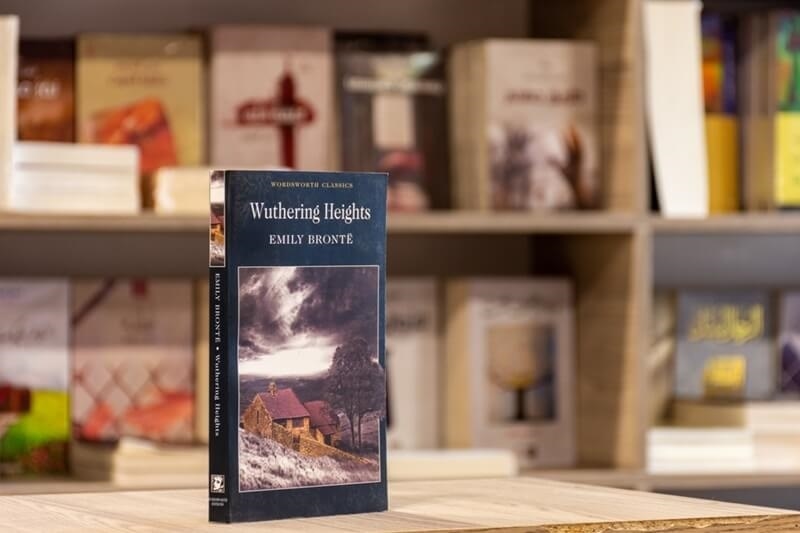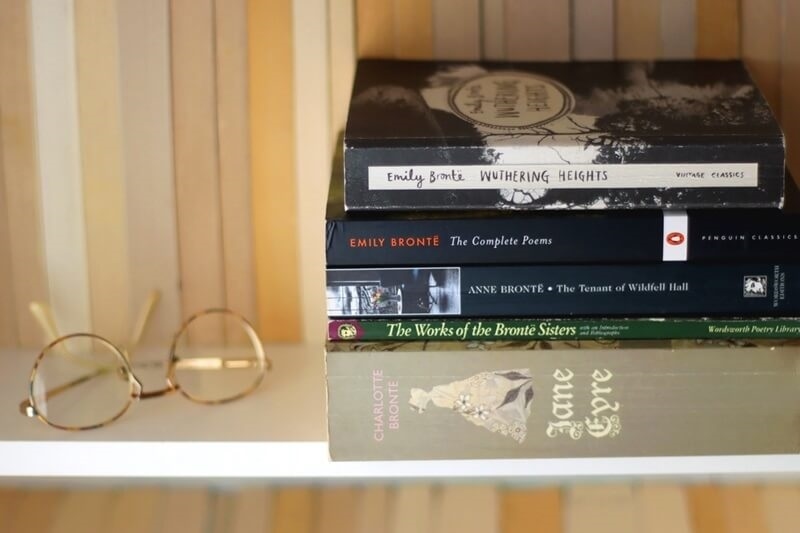
Emily Brontë is the rarest of authors whose work transcends centuries, geography, and literary form. Though she did not leave behind any trace other than a solitary novel, her literary worth preserved for herself an enduring place in English literature. Her initial finding of passion, desperation, and human nature has made her a core icon among readers looking for gothic romance and ramping up emotional drama.
Today, we're going to examine the best Emily Brontë novels, their lasting legacy, Brontë sisters comparison, and why they still move us so thoroughly. You might be a passionate reader of dark gothic literature by Brontë, a diligent student searching for a critical Wuthering Heights analysis, or a curious reader of the Emily Brontë literary canon. Whatever your interest, this critical reading will take you through her world of wild moors and tortured hearts.
Before moving on to specific works, it is helpful to place Emily Brontë within literary tradition. In contrast to nearly all her contemporaries, Brontë did not feel constrained to depend on euphemism in describing the cruel, sometimes brutal nature of love and obsession. Her novel is a product of Brontë's gothic fiction that is emotionally charged, morally rich, and psychologically daring.
At a time when women authors were entwined in conventional plot and sentimental narrative, Brontë penned texts in which love was neither a drawback of emotion nor a pause in passion but a force of annihilation, transcendence, and transformation. She thus rewrote the promise that readers could expect in romantic Gothic novels.
While Emily Brontë is today best known to have had but one masterpiece, she possessed an astonishing body of writing that continues to draw in readers. Below is a short list of the best 5 Emily Brontë works and books you may attempt your hand at if you are an aficionado of dark romanticism:
Wuthering Heights (1847) – Her sole published novel and the peak of dark romance literature in the English-speaking world.
Poems by Currer, Ellis, and Acton Bell (1846) – Poems with which she collaborated with her sisters Charlotte and Anne Brontë.
Remembrance (Poem, 1845) – Typically regarded as a poem in terms of its thematic approach, it remains a quintessential example of Emily's ongoing obsessions with death, mourning, and immortality.
The Prisoner (Poem, 1845) – Extremely gothic and metaphysical poem, supported by romantic gothic novels for its evocative power.
Last Lines (Poem, 1846) – Not a novel, but one of Emily's last works of the same emotional intensity that made Wuthering Heights a classic.
Even though she wrote no series of regular novels, each one of these collectively carries the power of her imagination. Each of them is needed by any reader of the complete corpus of Emily Brontë novels.
You can't talk about Emily Brontë novels without starting with the one she left us with, her only completed book, Wuthering Heights. She wrote it in 1847 under the pen name Ellis Bell, and the novel has remained an English literature staple.
Wuthering Heights, briefly, is the story of Heathcliff and Catherine Earnshaw, two lovers whose intensity of love defies sense, morality, and even death. It is a story of passion, vengeance, and the devastating power of unrequited love. Wuthering Heights is the ultimate icon of passion and darkness to readers of romantic gothic fiction.
Any decent analysis of Wuthering Heights illustrates how the novel is so addictive to readers:
The Duality of Hate and Love – Brontë illustrates that love is as devastating as it is salvific. Heathcliff's devotion to Catherine cannot be divorced from his hate for those who oppress them.
Nature as a Character – The Yorkshire moors are never scenery; they substantiate the barrenness and extremity of feeling of the characters.
The Supernatural Theme – From the ghostly sighting of Catherine's ghost to Heathcliff, to the eerie foreboding of the moors, the novel offers a glimpse of gothic literature by Brontë.
Social Class and Revenge – Heathcliff's rise from orphan to successful landlord is a social revenge and emotional destruction tale.
With these, Brontë wrote a book that is too smart to be easily categorized—half romance, half tragedy, half psychological study.

While standing alone as her book, Wuthering Heights is not the only thing that Brontë wrote. Her poetry books also tell us of her interest in death, eternality, and ghostly love. To readers who would appreciate reading more novels by Emily Brontë, her poems give a peek into the same gothic romanticism.
Some of her better-known poems—like Remembrance and The Prisoner—are as poisonous as in her novel. They are death, desire, and freedom of religion epitaphs, thus a read for gothic novel romance lovers.
In speaking of Emily Brontë, a broader Brontë sisters comparison is not entirely discounted. Charlotte Brontë, the author of Jane Eyre, and Anne Brontë, the author of Agnes Grey and The Tenant of Wildfell Hall, were both contributors to English literature.
Charlotte and Anne utilized literature for societal change, while Emily's was cosmic in scope, desperate, and fiercely self-critical.
She is a read for anyone who loves romantic gothic novels. Gothic romance requires dark settings, tragic couples, supernatural occurrences, and intense explorations of madness or obsession. Brontë perfected the recipe with Wuthering Heights, creating a novel that has endured for centuries.
Standing among other such giants as Mary Shelley's Frankenstein or Charlotte Brontë's Jane Eyre, Emily's novel holds a place for its unflinching ferocity. The romance between Heathcliff and Catherine is one of the most heartbreaking scenes ever written.
In spite of her untimely death at the age of 30, Emily Brontë's literary achievement is a titanic one in scope. Her novel resists genres and centuries:
Her lasting legacy is a testament to the power of a single novel to redefine an entire discipline of scholarship and cultural imagination.
You can ask yourself how a novel published in the middle of the 19th century can still address readers today. It is because it is timeless.
For those new to gothic romance, Wuthering Heights remains the perfect gateway to the genre.
If you are a new reader of Emily Brontë's novels, follow these tips to allow you to enjoy them best:
The real beauty of Emily's work is that it resists giving easy solutions. She doesn't describe love as a comforting balm but as a raw energy—exciting, suffocating, and inexplicable. That is why her work is in the perfect position at the top of romance gothic novels and is the writer's recommendation to the readers looking for something other than neat solutions.
With her poetry and Wuthering Heights, Emily Brontë showed us that literature could contain the most turbulent aspects of the human heart. Her vision continues to stir, provoke, and offend to establish the Emily Brontë legacy in literature as robust today as ever.
For fans of the best Emily Brontë books, the quest always begins—and ends—with Wuthering Heights. The gothic novel of morbid love choices, a classic that scorches its own trail and haunts the reader long after turning the final page, is the ultimate work. Coupling it with her poetry and her staggering influence on Brontë's gothic novels, we can see why her name remains synonymous with passion and tragedy.
Emily Brontë's life was short, but her work is forever. For gothic romantic writers like myself, she is more than an author - a legend who penned her own definition of love and loss that still shapes the very definition of literature itself.
This content was created by AI